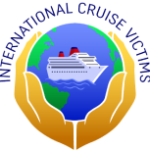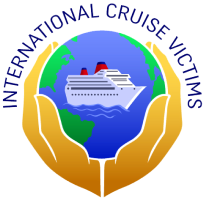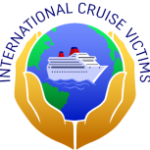Matthew’s Story
Few tragedies in life are more devastating than the loss of a child. For many of us, it is difficult to imagine anything worse. But the unimaginable becomes the harshest reality for those whose children are lost due to the negligence of a “trusted” corporation; specifically a global one touting a business model that “supports policies and practices that foster a safe, secure, healthy and sustainable environment.” Such was the experience of Sandra Roman when her 24-year-old son Matthew died while on a 5-day cruise aboard the Carnival ship The Fantasy in February of 2016. Her story begins the way so many stories of “vacations of a lifetime” do. Matthew, his girlfriend Andrea, and their friends Tino and Tiffany boarded their cruise ship in Miami, Florida on Monday February 22nd and headed toward sun and fun in the Bahamas. When the ship left port, Matt was a vibrant, healthy, athletic, strong, young man delighted by the prospect of five fun filled days with his friends. The cruise ship stopped both Tuesday and Wednesday in different ports in the Bahamas. Matthew sent his mom Sandra pictures of the beaches they visited, of the four of them riding rented scooters on the island, and of them re-boarding the ship on Wednesday evening. Later he texted her to tell her that he really wanted to talk to her and tell me how much he loved and missed her. He melted her heart, like he always did. Being a concerned Mother, Sandra asked him how his trip was going and if he was having fun. He responded that he was having a blast and could not wait to show her all of his pictures when he got home. They exchanged a few more messages and ended their conversation knowing they would see each other in a few more days. Later that evening Matthew went to the ship’s night club with his friend Tino. The two girls were tired and decided to stay in for the night and the boys went out for a few drinks. Matthew came back to his cabin around 2 am and crawled into bed. Thursday morning however, Matthew woke up around 7 a.m. throwing up. He assumed that he had a hangover and felt awful but just wanted to stay in the room and sleep. Andrea left him sleeping in the room and joined the other two for breakfast. They came back and checked on Matthew throughout the day and found his condition unchanged. When dinner time came and he still was not out of bed or feeling any better Andrea urged him to go to see the ship’s doctor. She knew that something much more than a hangover was going on with him. He had been vomiting for over 12 hours now and still unable to keep anything down. Andrea, incapable of getting Matthew to his feet, called Tino to help her get him to the infirmary. They arrived about 7:45PM, about 15 minutes before the clinic was scheduled to close for the night. After they explained the situation, the nurse on duty said she thought he just had a case of acid reflux for which she recommended Maalox, without taking his blood pressure, pulse, temperature, or any vital signs at all. Nor did she check him for signs of dehydration even after knowing he had been ill for over 12 hours now unable to keep down water even. She dissuaded them from calling the doctor in saying that it would cost them $200 cash while adding that she sees this all the time with young people who are hungover. She urged him to take the Maalox and promised he would feel better in half an hour. By morning, Matthew’s condition had not improved. In fact, it had deteriorated to the point that he was having
trouble breathing. Andrea quickly called for a wheelchair to help him off the ship as it was now in port back in Miami. A cabin steward brought one but as Matthew was being wheeled off the ship he went into cardiac arrest. The ship nurse was called. A different nurse now appeared and taking his vitals declared she needed to call 9-1-1, claiming that would take less time than dragging him back on the ship. Then she inexplicably disappeared and
without summoning a doctor Matthew was now left medically unattended. Other crew members stood by, hands in pockets watching, but doing nothing. A fellow passenger who happened to be an RN approached Matthew, now lying on the ground unconscious, and started to perform CPR. Suddenly, a cruise ship security employee who was attempting to block the area off, stops the RN and tells her that she must leave as well. Andrea, Tino, and Tiffany were left screaming for someone to help. After another 20 minutes or so an ambulance arrived having trouble locating their patient. Again, Matthew’s friends rushed into action and flagged down the EMT’s showing them the way inside the terminal to where Matthew lay. Matthew was rushed to the University of Miami hospital where he was put on full life support. The emergency room determined that Matthew’s pancreas was hemorrhaging and that all of his organs were shutting down as a result of severe dehydration. His mom Sandra arrived a few hours later hoping and praying for a miracle. But Matthew never regained consciousness. Ironically, as Sandra flew to Miami to be by her son’s side, she was seated next to a physician. The physician listened to Sandra’s story of Matthew’s crisis and told her that if his vital signs had only been taken the night before they would have seen the distress he was in and all of this could have been avoided. An I.V. of fluids, and some pain medication to keep him comfortable would have been enough to sustain him until they reached the hospital in Miami.
Several months later, Sandra, grief-stricken by the horrific fact that Matthew was not treated reasonably or appropriately, she became the personal representative of the estate of her son and filed a claim against the cruise line which owed a duty to Matthew to provide prompt, reasonable and appropriate medical care following his complaints of excessive vomiting, abdominal pain, nausea, trouble breathing, dizziness and weakness, and upon seeing his further deteriorated condition the following morning, in failing to stay with him until EMS arrived. Had he received reasonable and appropriate care and treatment, he would likely have survived. The case is still pending. Sandra is struggling to find justice. She now feels that the only way to do that is to become an advocate for increased safety standards on cruise ships. She hopes to be able to testify before congress and tell them the appalling story of how the cruise line’s negligence and sub-standard medical practices cost her son his life. She wants to help make sure no other parent ever had to experience what she experienced. She wants to be able to warn potential passengers by letting them know that they are the most vulnerable at a time when they least suspect it; on their vacation of a lifetime.
Understandably, Sandra’s suffering is nightmarish. In a statement she wrote and issued to the cruise line describing her loss she explained, “My future has been robbed and nothing can make that right. I do not ever see myself recovering from this.”


